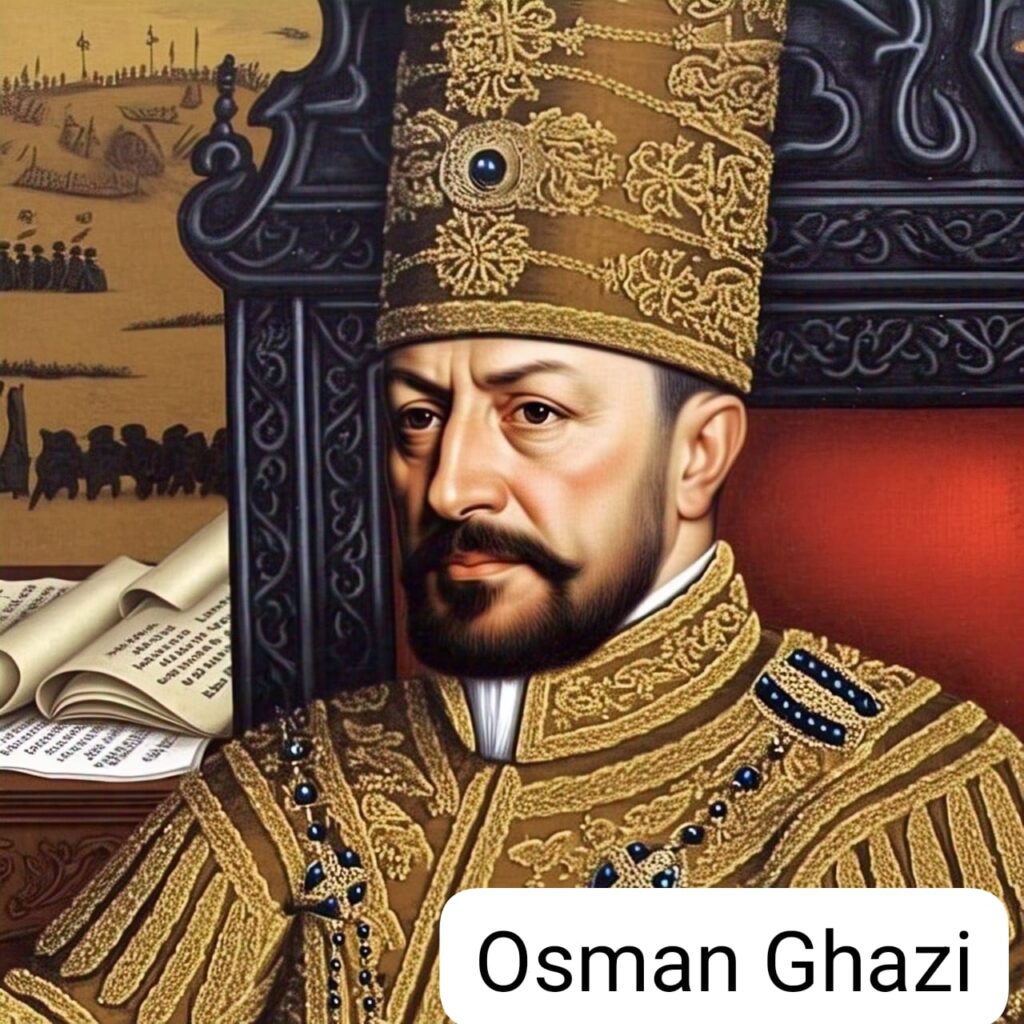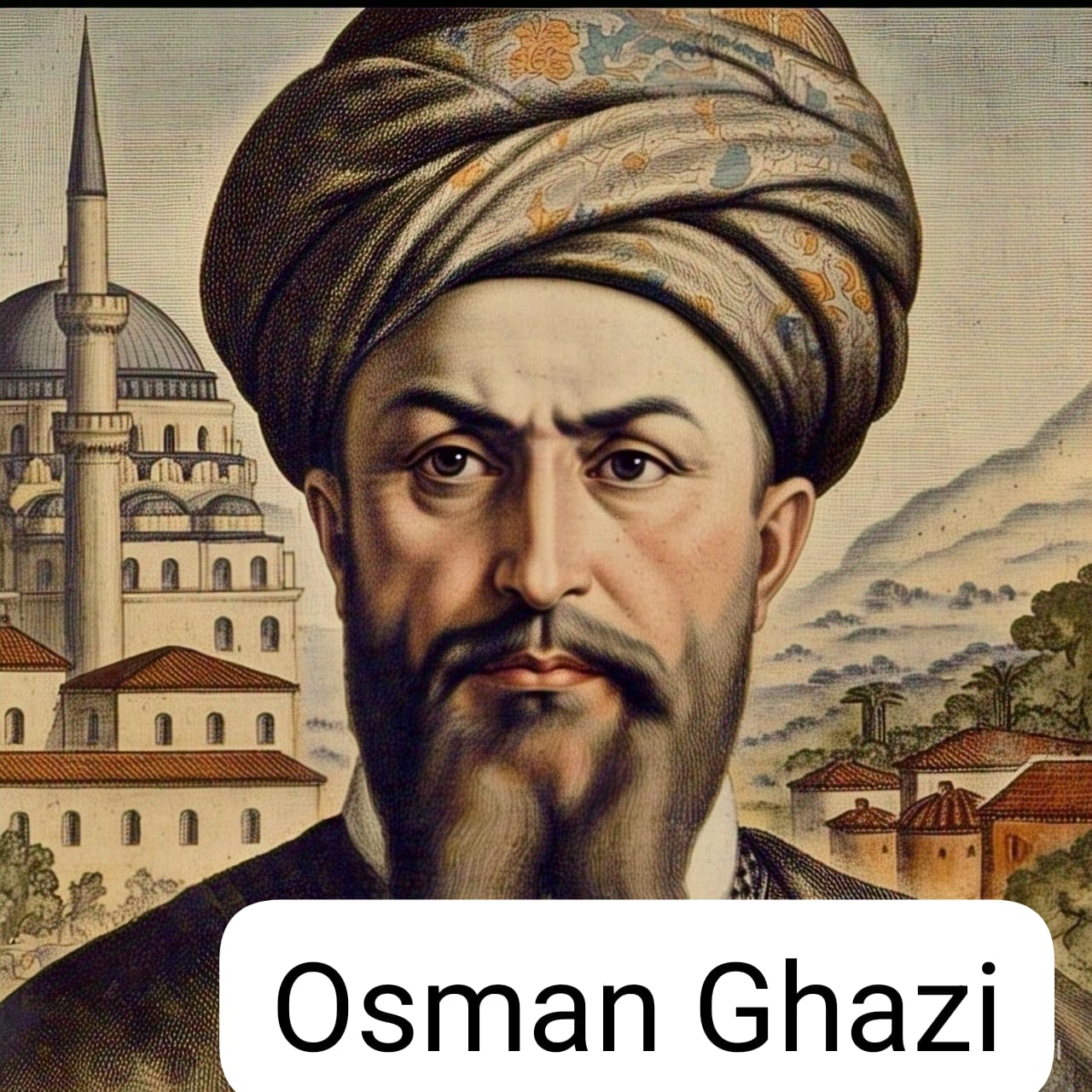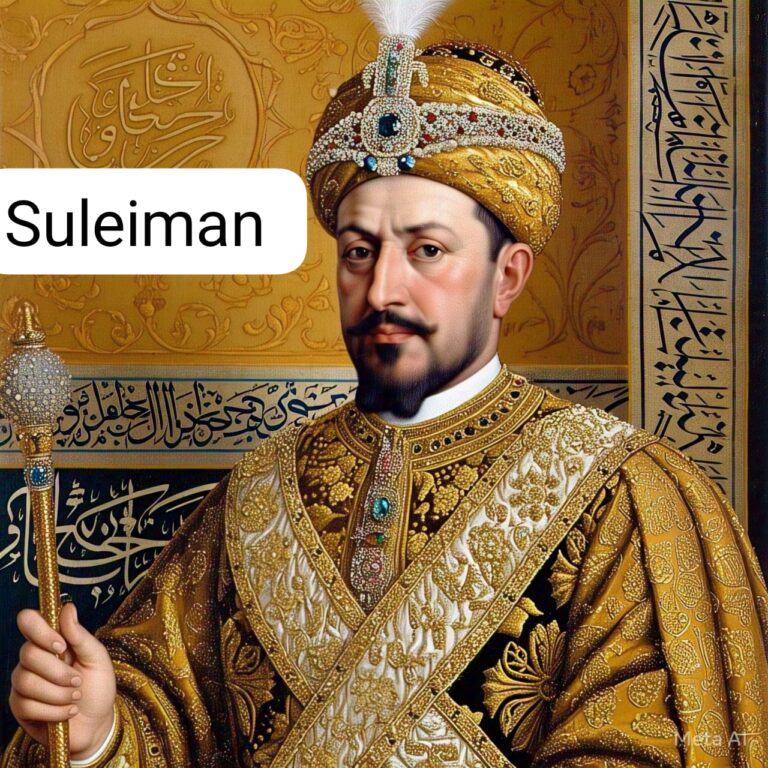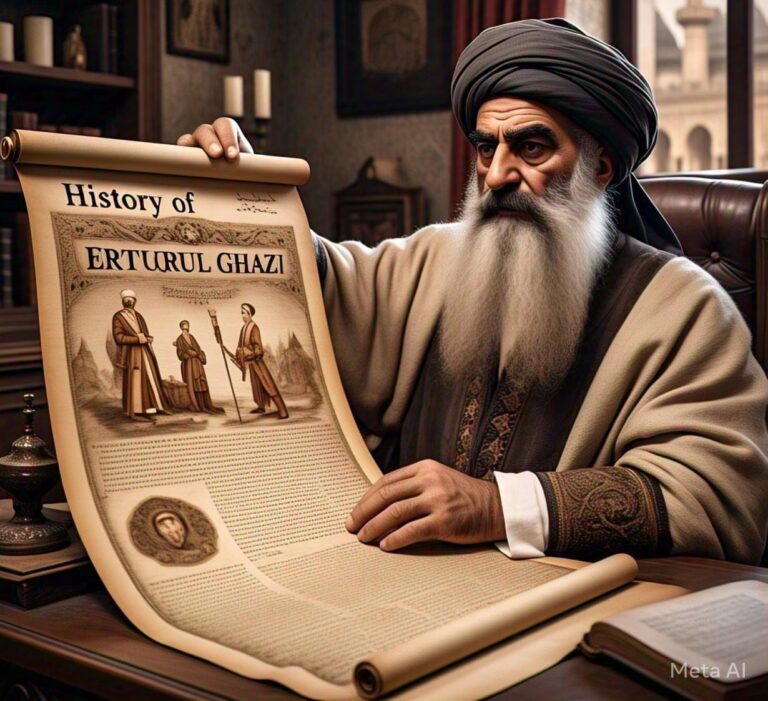History of Osman Ghazi
Osman Ghazi The Founder of Ottoman Empire
Osman Ghazi, also known as Osman Bey, was a Turkish tribal leader who founded the ottoman Empire in the late 13th century. Born around 1258 AD in sogut, a small town in modern-day Turkish, Osman was the son of Ertugrul Ghazi, a Turkish tribal leader.
Early Life and Leadership
Osman grew up in a time of great turmoil and upheavel. The seljuk Empire, which had once dominated the region, was in decline, and the Byzantine Empire was seeking to erpand its territories. Osman’s father, Ertugrul, had established a small Turkish state in sogut, which was surrounded by Byzantine territories.
After his father’s death, Osman succeeded him as the leader of the Turkish state. He was a skilled military leader and strategist, and he quickly set about expanding his territories. In 1299, Osman declared independence from the Seljuk Empire and established the Ottoman Empire.

Military Campaigns and Conquests
Osman’s military campaigns were marked by their bravery, cunning and strategic brilliance. He led his armies to victory against the Byzantines, capturing key cities and territories. In 1302, Osman defeated the Byzantines at the Battle of Bapheus, which marked a significant turning point in the history of Ottoman Empire.
Over the next several decades, Osman continued to expand his empire, conquering much of northwestern Anatolia. He also established a strong and efficient administrative system, Which would serve as the foundation for the Ottoman Empire’s future growth and success.
Key Conquests and Events
Conquest of Eskisehir and Yenisehir
Osman’s forces captured these key cities, which became important centers of trade and commerce.
Siege of Nicaea
Osman’s forces laid siege to the city, but were ultimately unsuccessful in capturing it.
Battle of Bapheus
Osman’s forces defeated the Byzantines, marking a significant turning point in history of the Ottoman Empire.
Establishment of the Ottoman Empire
Osman declared independence from the Seljuk Empire and established the Ottoman Empire.
Legacy and Death
Osman Ghazi died in 1323/4, after a long and illustrious career. He was succeeded by his son, Orhan, who would go on to expand the Ottoman Empire even further. Osman’s legacy is profound and far-reaching. He is remembered as the founder of the Ottoman Empire, which would go on to become one of the most powerful and influential empires in history.
Today, Osman Ghazi is remembered and celebrated in Turkey and Around the world. His tome, located in Sogut, is a place of pilgrimage for many Turks and historians. His legacy continues to inspire and fascinate people to this day
Impact on History
Osman Ghazi’s impact on history cannot be overstated. He founded the Ottoman Empire, which would go on to shape the course of world history for centuries to come. The Ottoman Empire was a major center of trade, culture, and learning, and its legacy can still be seen in the modern-day cultures of Turkey, the Balkans, and the Middle Eastm.
In conclusion, Osman Ghazi was a remarkable leader who founded the Ottoman Empire and shaped the coures of world history. His legacy continues to inspire and fascinate people to this day, and his impact on history will be remembered for generations to come.
Osman Ghazi’s Leadership Style
Osman Ghazi was known for his wise and just leadership. He was a skilled military strategist and a charismatic leader who was able to inspire loyalty and devotion in his followers. He was also a fair and compassionate ruler who was loved by his people.
Osman Ghazi’s leadership style was characterized by his ability to balance military conquest with administrative efficiency. He was able to establish a strong and efficient administrative system, which would serve as the foundation for the Ottoman Empire’s future growth and success.
Osman Ghazi’s Legacy in Modern Times
Osman Ghazi’s legacy continues to be felt in modern times. He is remembered as the founder of the Ottoman Empire, which played a major role in shaping the course of world history. His legacy can still be seen in the modern-day cultures of Turkey, the Balkans, and the Middle East.
In Turkey, Osman Ghazi is celebrated as a national hero and symbol of Turkish nationalism. His tomb, located in Sogut, is a place of pilgrimage for many Turks and historians. His legacy continues to inspire and fascinate people to this day.




